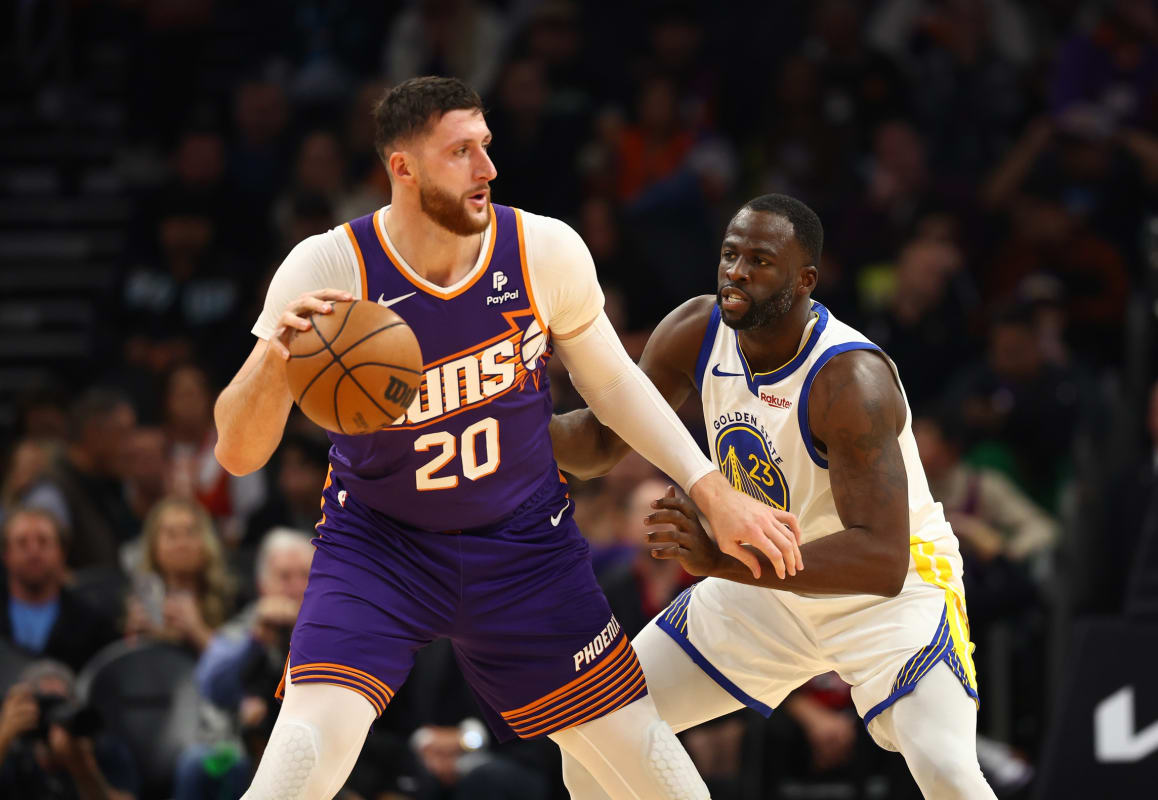What stands out about Draymond Green’s latest transgression, a spinning smack of Jusuf Nurkić’s face, is that it was so obviously unnecessary. Green’s Warriors led Phoenix by five early in the second half of a December game. Green was fighting for position with his back to the basket, which was around 18 feet away. Golden State’s Brandin Podziemski had not even inbounded the ball yet, and when he did, he passed it to Klay Thompson.
The problem for the Warriors is that Green seems convinced that everything he does is necessary. He built his whole career on being the toughest, smartest player on the court—and he believed those qualities could carry him when very few other people did. So when Rudy Gobert tussles with Thompson, Green thinks he has to be the enforcer. When Nurkić has a hand on his hip, Green thinks he has to sell a foul. When Jordan Poole poses any kind of threat to his value, real or imagined, Green won’t let it slide. Extracting the excessive violence from his game is like extracting spice from a bowl of chili.
You might think that, after all these incidents, somebody as intelligent as Green would learn his lesson. In a general sense, he can. He knows he was wrong for punching Poole, and he has blamed himself for the Warriors losing the 2016 Finals to the Cavaliers. (Green was suspended for Game 5.) But in the moment, on the court, Green fails to differentiate between what gets him in trouble and what will probably get him to the Hall of Fame.
The rest of us might look at all these incidents and think that, at some point, even Green should realize he has a problem. But Green can also point to the last dozen years as proof that his way works. Even after he was suspended for five games for putting Gobert in a headlock, he said he had no regrets.
“The consensus amongst all of us is that I’m going to be me no matter what,” Green said then. “That’s not going to change.”

Mark J. Rebilas/USA TODAY Sports
Well, it didn’t change. So at least he was right about that.
A lot of successful athletes are driven by psychological baggage: a parent who never showed love, a childhood marked by economic hardship, a coach who didn’t believe in them. But in most of those cases, the trauma pushes them to develop their talent—and so, if they free themselves from the psychological burden, they can continue to use their talent.
For Green, the forces that keep getting him suspended are part of his talent. When he left Michigan State, he was a 6'7", 22-year-old power forward who shot 44% from the field in his last two college seasons. There were good reasons he fell to the 35th pick in the 2012 NBA draft. But he had an extraordinary understanding of the game and ability to process in real time, and he never backed down from a fight.
It took the Warriors more than a full season to see his value, just as it had at Michigan State. But Green has always believed that if you just put him on the floor, he will make his team better. He believes it as deeply as Steph Curry believes he will make his next shot. This is why, when people call Green out on his behavior, he often says they don’t understand him.
If you look at Green’s occasional apologies over the years, they are almost always to his own team, not to the opponent. He apologized for getting suspended in the 2016 Finals, but not for hitting LeBron James in the groin. After the Gobert incident this fall, Green insisted he will always stand up for his teammates. He did apologize to Nurkić for hitting him— but only, Green said, because he didn’t intend to hit him: “I am not one to apologize for things I mean to do.” He clearly thought he was right to try to sell a foul the way he did.
Now the NBA has suspended Green indefinitely. The league and Warriors can send Green to counseling, but he might spend the sessions convincing the counselor he is right. History tells us that Green will learn the same lesson he has always learned: His team needs him.







